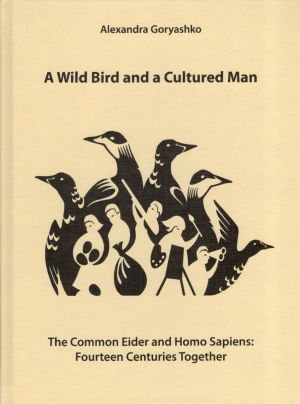This is the world's first scientific-popular publication dedicated to the history of the relationship between man (Homo sapiens) and the common eider (Somateria molissima). It will take the reader from the eiders at the excavation sites of early human settlements to the eiders in art; from myths and legends to the latest scientific data; from the eiders and hunting trophies to these in museum collections.
How do the eiders live and what explains the peculiarities of their behaviour? What makes eiderdown the best natural insulator, and is it really the best? Why is eiderdown considered an expensive luxury item in some countries while in others eider meat and eggs have become of value while no one needs the down? How did the eider farms, where wild birds are not afraid of man, arise and function? You'll find answers to these and other questions in the book.
Special attention is paid to the story of the relationship with the eider in Russia, including the work to establish eider farms in the USSR and unique research practically unknown to the world community. The book will also tell you about people connected to the preservation and study of the eider, from St. Cuthbert who lived in the 7th century to researchers who are still with us. For the first time information about dramatic biographies of Soviet scientists who studids the eider and how eider farms were created is published.
Over 500 literary and archive sources encompassing the period from the 7th to the 21st century and over 700 archival and modern photos are used in the book. Over 50 photographers, 20 artists and sculptors and over 20 museums and archives from different countries provided illustrations. Most of the documents and photos are published for the first time.
The book will be of interest to everyone one way or another connected to the eider: biologists and conservationists, farmers and hunters, sellers and buyers of eiderdown items, as well as to anybody interested in birds and the history of the relationship of man and nature.
Translated by Pavel Voytinsky














